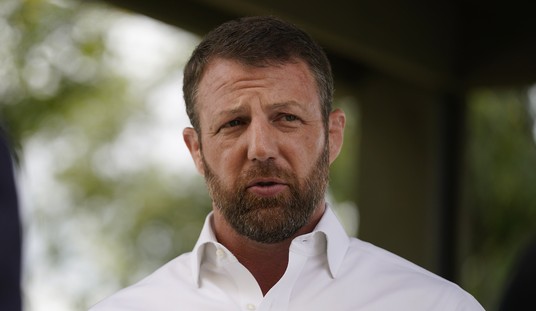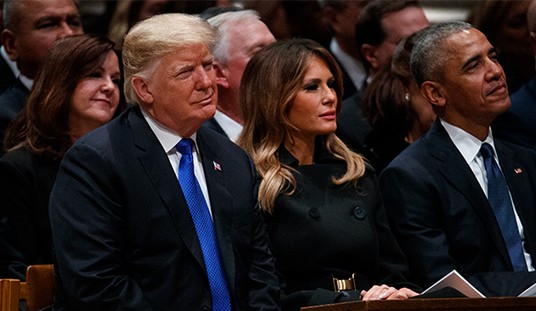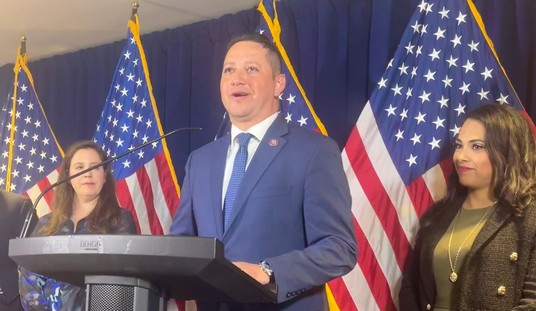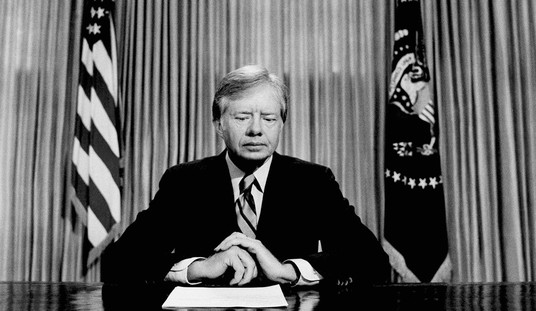
Today is a special day in the RedState Department of History. Today is the 37th anniversary of the first day of the Reagan Administration, as orchestrated by the best President of my lifetime, Ronald Wilson Reagan.
I was too young to vote for him in 1980 when he demolished Jimmy Carter, but was able to cast my first vote for President for Reagan’s overwhelming landslide re-election over Walter Mondale in 1984.
But if you know your history, you also know that the first day of the Reagan Administration was a special day for 51 Americans held hostage in Iran for the preceding 444 days by Iranian militants.
Within 20 minutes of his swearing-in, Reagan was able to announce that the hostages were headed home, as Iran’s government gave a final poke in the eye to Carter. Today is the anniversary of their first day of freedom.
Some say the seeds of the crisis were sown in 1953, when the CIA’s Operation Ajax, with British help, deposed Prime Minister Mohammed Mossadegh and installed Reza Pahlavi as Shah of Iran.
But in 1979, Pahlevi was deposed and went to the United States in search of treatment for cancer. Thus enraged, members of the Muslim Student Followers of the Imam’s Line took over the embassy on November 4, 1979. To this day, Iran’s Revolutionary Guard maintains the former U.S. Embassy and has used it as a training center.
Originally, 66 Americans had been taken captive, but shortly afterward, the kidnapers released women and African-Americans, bringing the total down to 52. One hostage took ill in the middle of the crisis and was released.
Rhetoric quickly turned violent. The students saw Pahlevi’s trip to the United States as equivalent to American complicity in crimes committed by the Shah’s regime, while the Americans saw the kidnapping, correctly, as a violation of international law.
Carter’s administration took a hard line against the Iranians, issuing Executive Order 12170, which froze Iranian government assets in the United States, and noted that America would not submit to blackmail. However, Carter’s credibility, and his prospects for re-election in 1980, were both gravely damaged by Operation Eagle Claw, an attempt to rescue the hostages on April 24, 1980.
Instead of success, the operation resulted in the deaths of nine people including eight Americans, and the loss of two helicopters.
Meanwhile, by this time Pahlevi had been granted asylum in Egypt, and died of cancer in July 1980. In September of that year, Iran was invaded by Iraq, and it became advantageous for Iran to seek a diplomatic end to the crisis. This was mediated by Algeria, and the announcement was made of a deal to release the hostages on January 20, 1980.
To his credit, Reagan appointed Carter as his special emissary to greet the returning hostages, whose feelings were summed up by Colonel Chuck Scott (USA, ret.):
“And then when we got back to the states — when we entered the United States territory, the pilot announced, and I’ll probably get choked up when I say this. He said, “Ladies and gentlemen, you’ve just entered the United States airspace.” There was a roar in there that was a stadium roar. We were all just so tickled. We landed at Stewart Air Force Base. And as we made that 15 mile run to West Point from there, they were lined 10-deep that whole 15 mile run. And we started to get a sense of, hey, maybe this did mean something to the American people. And when you stop and think about it, we were the icons of a crisis. But this whole nation was held hostage. It was like no homecoming you’ve ever been to in your whole life.”
Happy Sunday! If you’re taking in the conference championship games (Skol Vikings!) enjoy the day — or whatever you’re doing on a Sunday afternoon. Meanwhile, enjoy today’s open thread!














Join the conversation as a VIP Member